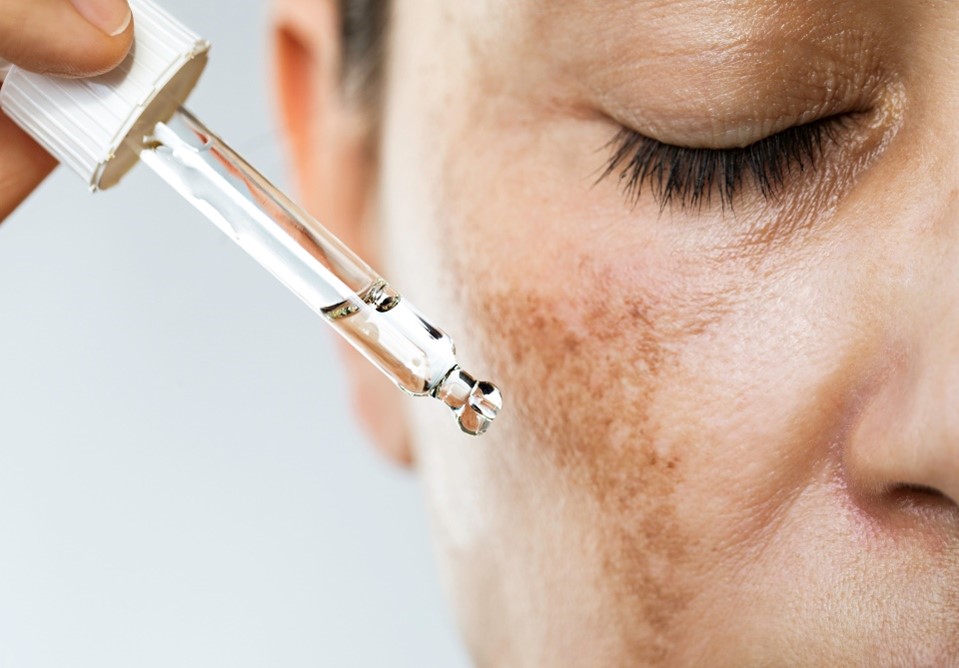Understanding Melasma

What is Melasma?
A common skin condition, melasma causes patches and spots on the skin that are darker than the natural skin tone. These patches affect sun-exposed areas, usually on the face, and they are typically symmetric, though they can have irregular borders and pigmentation. Women are much more likely than men to develop melasma, and when it occurs during pregnancy, it is called chloasma, or sometimes the “mask of pregnancy.” It can be confused with other skin conditions, so it is important to see a board-certified dermatologist for an accurate diagnosis. Sometimes, melasma goes away on its own. When it doesn’t, your dermatologist can create an individualized skin care treatment plan to address it. Melasma is benign and it is not contagious, but it can be persistent, and this can sometimes be distressing.
What Causes Melasma?
The exact cause of melasma is not clear, but there seem to be several different factors at play. Darker-skinned people are at higher risk than those with fair skin, and people who are sensitive to estrogen and progesterone are also more prone to getting melasma. Birth control pills, pregnancy, and hormone therapy can all trigger this condition, as can stress, thyroid disease, and sun exposure. People can be predisposed to melasma, although this does not necessarily mean they will develop it. There are some skincare products and cosmetics that can inflame the skin and make melasma worse, so if you have melasma, it is important to avoid harsh or abrasive products.
Will Melasma Go Away on its Own?
Melasma can go away on its own, but in some cases, it lasts for several years. If you have melasma, and you are bothered by it, it is best to see a dermatologist as soon as possible. The longer you have had melasma, the harder it is to get noticeable results from treatment. During pregnancy, however, it is best not to seek treatment for the melasma. Instead, wait until after the baby is born, and see if the melasma improves or goes away without treatment.
Are There Effective Treatments for Melasma?
Some creams can fade the discoloration of melasma, but it is common for the condition to return after unprotected sun exposure. Using sunscreen every day and wearing a wide-brimmed hat while outdoors in summer can help keep the spots from getting darker. It is important to seek the assistance of a dermatologist in treating melasma, because different people require different types of treatment, based on their skin types and skin tone. Hydroquinone, tretinoin, and corticosteroids can all be applied topically to fade melasma. Additionally, your dermatologist might recommend a chemical peel, laser or light therapy, microneedling, or microdermabrasion.
Let Swinyer-Woseth Help You Care for Your Skin
If you’re looking for a dermatologist to help you care for your skin, Swinyer-Woseth Dermatology is committed to providing superior, professional skin care in a manner that’s practical, efficient, and compassionate. We have the knowledge and skill not only to treat your skin but also to recommend skincare products to help you care for your skin at home. With over 30 years of experience providing dermatological services in Salt Lake City, we provide a variety of services, from cosmetic skincare to treatment for skin cancer. Our team of board-certified dermatologists and licensed cosmetic service providers are here to provide you the care you need in a comfortable, professional atmosphere. Call (801) 682-4715 or contact us through our website.
